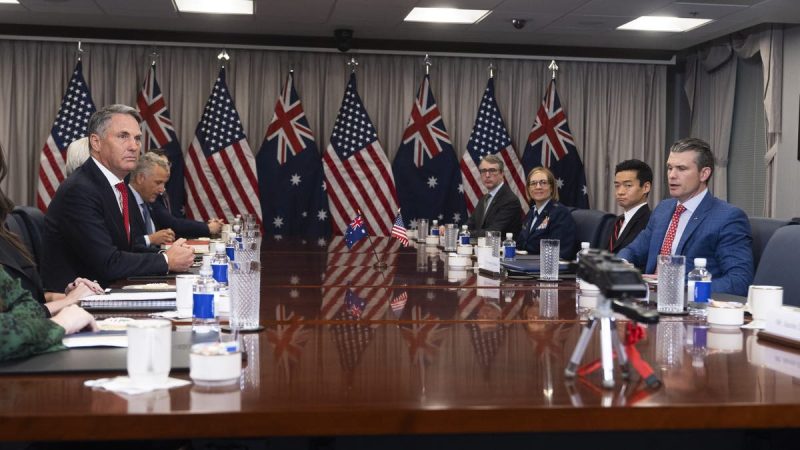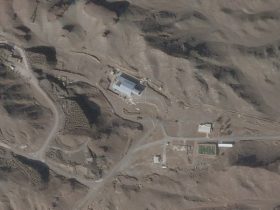The Pentagon is considering backing out of the nuclear submarine agreement former President Joe Biden struck with Australia and the United Kingdom, amid shipbuilding problems back at home.
‘The Department is reviewing AUKUS as part of ensuring that this initiative of the previous Administration is aligned with the president’s ‘America First’ agenda,’ a U.S. defense official said.
‘As Secretary Hegseth has made clear, this means ensuring the highest readiness of our service members, that allies step up fully to do their part for collective defense, and that the defense industrial base is meeting our needs. This review will ensure the initiative meets these common sense, ‘America First’ criteria.’
Under the deal, which was seen as a response to China’s growing military threat in the Indo-Pacific, the U.S. and the UK would help Australia acquire conventionally armed, nuclear-powered submarines. Canberra would initially purchase several Virginia-class submarines in the early 2030s. The three nations would jointly design a new class of submarines, with Australian production beginning in the 2040s.
The three nations also agreed to share technology in cyber and quantum capabilities, AI, hypersonics and deep sea radar.
In a confirmation hearing in March, Pentagon policy chief Elbridge Colby seemed leery of offering Australia nuclear-powered submarines while the U.S. struggles to produce enough for itself.
‘If we can produce the attack submarines in sufficient number and sufficient speed, then great. But if we can’t, that becomes a very difficult problem because we don’t want our servicemen and women to be in a weaker position,’ Colby said.
Australia plans to increase its defense spending to 2.4% by the mid-2030s, but the U.S. is pushing it to boost that figure much faster.
In a recent meeting in Singapore with Australian defense minister Richard Marles, Defense Secretary Pete Hegseth told Marles the U.S. wants to see Australia spend 3.5% on defense.
Admiral Sam Paparo, head of Indo-Pacific Command, voiced support for the AUKUS initiative in April.
‘AUKUS delivers something to INDOPACOM that is critical and could be a key advantage, and that is a Indian Ocean submarine base. This gives us faster response time to the South China Sea than in Hawaii, in Washington, in San Diego,’ Paparo said.
Congress has appropriated billions of dollars to boost submarine- and ship-building capabilities, but some lawmakers claim the Pentagon’s plans to do so remain opaque. Meanwhile, experts estimate that China’s shipbuilding capabilities are around 230 times higher than those of the U.S.
Rep. Rosa DeLauro, the House’s top Democrat appropriator, pressed Hegseth on his shipbuilding plan in a hearing this week.
‘There is a gap,’ Hegseth admitted, ‘but we believe we are closing it.’
However, DeLauro was not satisfied, demanding detailed data to back up that claim.
‘We do not have any information or data that can substantiate what you’re saying,’ she shot back. ‘Give us the details.’
‘We’ve had difficulty with the prior administration, and I don’t mind calling them out. What is your plan for the future?’









